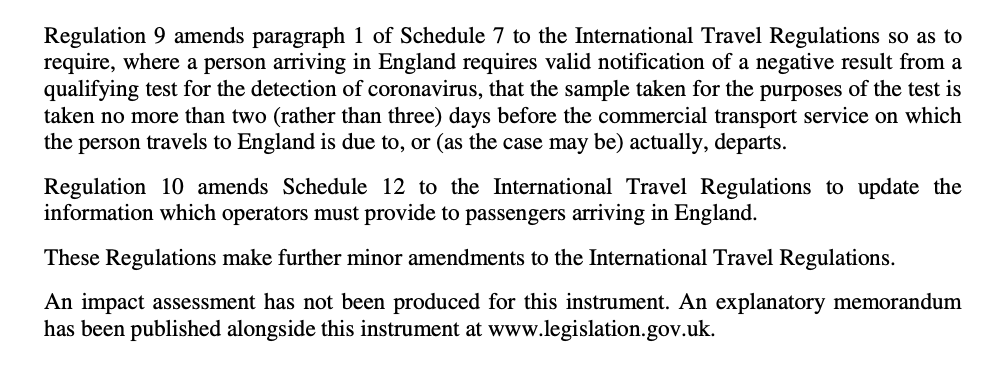
I still think that the reason the Prime Minister continues to deny a "party" took place is that if he does there is a risk he is exposing the attendees to possible criminal sanctions.
There have been endless discussions on the legality of the party, and there are some potential issues around applicability of the regulations, but if I was advising Downing St (as I assume the AG has) I would advise there is a real risk of prosecution.
If the regulations applied, the key question for the police would probably be whether the party was "reasonably necessary for work".
If the Prime Minister describes it as a "party" that means the answer to the question if highly likely to be "no".
If the Prime Minister describes it as a "party" that means the answer to the question if highly likely to be "no".
In order to make the risk of prosecution less, the Prime Minister has to keep the line that this was not a party and all guidance was followed.
The cost, of course, is that the public think he is lying.
The cost, of course, is that the public think he is lying.
People saying he shouldn't lie to Parliament - if I was advising him (on law not politics!) I may say "party" has no legal meaning, and is somewhat contestable in plain English, but by admitting it you are killing off the possibility of a "reasonably necessary for work" defence
Also, his repeated statement that "all guidance was followed" including in Parliament.
The guidance (not the law) said no workplace should have a Christmas "party".
So by admitting a "party" he would also be admitting he lied to parliament. Which would be a resigning matter.
The guidance (not the law) said no workplace should have a Christmas "party".
So by admitting a "party" he would also be admitting he lied to parliament. Which would be a resigning matter.
There is also the leaving do in November, during full lockdown, that he apparently attended.
There the legal risk is higher because there was no "permitted organised gathering" defence.
And if he admits 18 Dec was a party what does that say about the leaving do?
There the legal risk is higher because there was no "permitted organised gathering" defence.
And if he admits 18 Dec was a party what does that say about the leaving do?
I'm not saying any of this is good or bad - I'm just trying to figure out why the government is acting as it is acting, and it reminds me quite a bit of a client who thinks they are in legal trouble.
If only there was some sort of group to “police” what happened, which could “investigate” things that happened in the past “retrospectively”, gather “evidence” and consider whether they broke the criminal law. thetimes.co.uk/article/no10-c… 





The government agrees with me. Seems like we need someone to do it. Maybe a “past crime tzar” to investigate things that have happened? 
https://twitter.com/barristersecret/status/1468678373253820421?s=21

Anyway, in seriousness, if the Prime Minister had admitted a party the Met couldn’t have made their statement that there was no evidence, which supports my thread above… 

… which is not to say the Met’s statement makes sense. Either they don’t investigate past Covid breaches as policy or they do (sometimes?) but not enough evidence to investigate. And if the latter, the police obviously can do their own investigations. Alice in Wonderland stuff
• • •
Missing some Tweet in this thread? You can try to
force a refresh













